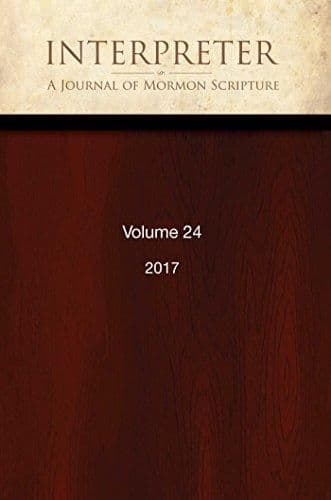Journal
“This Son Shall Comfort Us”: An Onomastic Tale of Two Noahs

Title
“This Son Shall Comfort Us”: An Onomastic Tale of Two Noahs
Publication Type
Journal Article
Year of Publication
2017
Authors
Bowen, Matthew L. (Primary)
Journal
Interpreter: A Journal of Latter-day Saint Faith and Scholarship
Pagination
263-298
Volume
23
Abstract
From an etiological perspective, the Hebrew Bible connects the name Noah with two distinct but somewhat homonymous verbal roots: nwḥ (“rest”) and nḥm (“comfort,” “regret” [sometimes “repent”]). Significantly, the Enoch and Noah material in the revealed text of the Joseph Smith Translation of Genesis (especially Moses 7–8) also connects the name Noah in a positive sense to the earth’s “rest” and the Lord’s covenant with Enoch after the latter “refuse[d] to be comforted” regarding the imminent destruction of humanity in the flood. The Book of Mormon, on the other hand, connects the name Noah pejoratively to Hebrew nwḥ (“rest”) and nḥm (“comfort” and “repentance” [regret]) in a negative evaluation of King Noah, the son of Zeniff. King Noah causes his people to “labor exceedingly to support iniquity” (Mosiah 11:6), gives “rest” to his wicked and corrupt priests (Mosiah 11:11), and anesthetizes his people in their sins with his winemaking. Noah and his people’s refusal to “repent” and their martyring of Abinadi result in their coming into hard bondage to the Lamanites. Mormon’s text further demonstrates how the Lord eventually “comforts” Noah’s former subjects after their “sore repentance” and “sincere repentance” from their iniquity and abominations, providing them a typological deliverance that points forward to the atonement of Jesus Christ.
Subject Keywords
Bibliographic Citation
Terms of use
Items in the BMC Archive are made publicly available for non-commercial, private use. Inclusion within the BMC Archive does not imply endorsement. Items do not represent the official views of The Church of Jesus Christ of Latter-day Saints or of Book of Mormon Central.